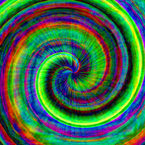This post is also available in Dutch .
Administering a small dose of hallucinogens (also called microdosing) has become more and more popular. Not to trip, but to improve mood and performance. Is there also scientific evidence for these effects?
Microdosing is popular
Microdosing means that one regularly takes small amounts of hallucinogens, such as psilocybin (a substance found in truffles and magic mushrooms) and LSD. The amount is around 1/20 of a typical dose used recreationally for a trip. With this low dose, side effects such as visual and auditory hallucinations do not occur but according to certain reports your creativity, productivity, focus and positive mood are increased.
At least this is what you read on several social media platforms (such as www.microdosing.com and www.reddit.com/microdosing with over 48.000 followers) and columns in media in which personal experience, instructions and protocols are shared openly. This media attention makes more people experiment with microdosing at home, often not aware of the possible consequences.
There is little scientific research
With increasing recreative use of hallucinogenic drugs in the 60s and 70s a negative image has risen and research into it was prohibited. Recently this prohibition was cancelled and findings show positive therapeutic effects of a full dosis of hallucinogenic drugs on depression, anxiety and addiction (read more about this in our previous blog).
The first scientific evidence for microdosing
hallucinogens shows self-reported improved mood, more energy and improved
attention. Unfortunately these first studies ar methodologically not reliable
because they are based on self-reports of users via questionnaires and
interviews
The problem with such studies is that expectations of participants and so-called placebo effects might play a role by filling in those questionnaires. Since there are several positive claims regarding microdosing, the expectation to have a similar experience may bias the perception and self-report. The reliability of such a study is furthermore dependent on honesty and correctness of the self-reports.
A different observational study investigated besides immediate and long-term effects of microdosing also the underlying thoughts and expectations about the effects. All participants shared the belief that microdosing would lead to advantages on all psychological aspects measured. After a microdosis they reported an immediate boost on mood, attention and creativity that did not last in the subsequent days. In the long term (6 weeks after the microdose) users reported among others increased mental health and alertness.
While users had separate expectations regarding the mental effects (such as creativity or alertness), the expectations were not one-to-one related to the observed effects. But to fully exclude the indirect effects of placebo or expectations, more controlled research is necessary.
Urge for experimental research
Experimental research means that participants take an accurately weighed dose of the hallucinogen in a controlled environment, which effects are then objectively measured and compared to a control group.
Currently it seems better to improve your mood and productivity. Have you already considered a powernap? (read our previous blog about this)
Written by Mahur. Edited by Angelique and Felix, translated by Jill
Read more:
Systematic review on the effects of hallucinogens
